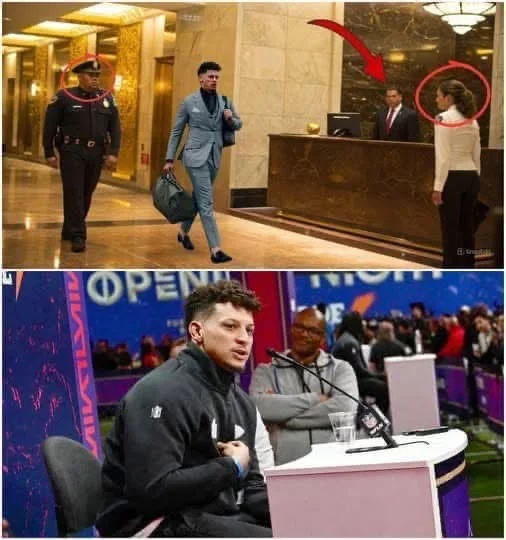I’d been standing near the fold-out chairs for nearly twenty minutes.
Every other girl had someone. Cowboy boots and neckties, grinning fathers twirling their daughters like royalty. Even Mr. Wheeler—the janitor from my school—was out on the floor dancing with his niece like it was the best night of his life.
But mine hadn’t shown up.
I kept glancing at the door. The big one with the tarnished brass handle that always stuck a little when you pulled it. I tried not to cry—I’d done my own hair that afternoon, and I didn’t want the curls to come undone.
Then, just when I’d started to believe he really wasn’t coming—
The door creaked open.
He walked in wearing jeans, his work vest, and the same cap he always wore to the job site. He scanned the room, found me, and in that second, I saw it in his eyes.
Guilt. But something else, too—something I couldn’t quite name.
I stepped toward him slowly. “You’re late,” I said. My voice barely came out.
He crouched slightly and held out a single white rose. “I had to make a stop first.”
“Where?”
He hesitated.
Then leaned in close and whispered, “I had to make sure she didn’t keep us from tonight.”
My hand tightened around the rose’s stem as it sank in—he meant Mom.
Just the night before, she told me not to get my hopes up. Said he had “better things to do than play dress-up.” I wanted so badly for her to be wrong.
Now here he was, breathless and serious, kneeling like the night meant something.
“I told her I’m not missing another dance,” he added. “Not this one. Not ever again.”
Something cracked and melted inside me all at once. I hadn’t seen him this sure about anything in a long time.
We stood there quietly—me looking at the rose, him looking at me like I was the only one there. The music changed to an old country tune he used to hum in the truck, and he held out his hand.
“May I have this dance, princess?”
I didn’t answer—just nodded and let him guide me to the middle of the floor.
His boots weren’t meant for dancing, and I kept tripping on the hem of my dress, but he didn’t care. He just kept looking at me like I was magic.
“I didn’t think you’d come,” I whispered.
“I almost didn’t,” he admitted. “But not for the reasons you think.”
I glanced up. His jaw was tight, like he was holding something back. I didn’t push—it didn’t feel like the moment for questions.
The rest of the night flew by. We laughed, danced, and even won a raffle basket with chocolates and bath salts. He let me carry it like it was a crown jewel.
When the final song played and the lights began to fade, he walked me to his truck. The air was chilly, and he wrapped his jacket around me like he used to when I was small.
I assumed he’d take me back to Mom’s like always. But halfway down Maple Drive, he pulled to the side of the road.
“I need to tell you something,” he said, cutting the engine.
I waited.
“She’s moving,” he said. “Your mom. She got a job offer in St. Louis. She plans to take you with her.”
I froze. “What?”
“She told me right before I came. That’s why I was late.”
“But I don’t want to move to St. Louis.”
“I know, sweetheart.” He sighed, staring at the steering wheel. “She says it’s what’s best. Says I’ve been too ‘in and out.’ That you need something more stable.”
My chest felt tight.

“She can’t just take me,” I said. “Can she?”
“She thinks she can. But I’m not letting it go that easy.”
That night, I cried myself to sleep with the raffle basket beside me like a stuffed animal.
The weeks after were tense. Mom packed boxes and made quiet phone calls behind closed doors. I pretended not to hear.
Dad started showing up more. He brought groceries, helped with homework, even sat through my off-key choir rehearsals. But I could tell—something was brewing.
One afternoon, he picked me up and drove out to the edge of town. We parked outside a small law office.
“Why are we here?”
He shut off the truck. “Because I’m going to fight for you.”
“Fight?” I echoed.
“She filed for full custody.”
My stomach sank.
“I’m not letting her take you,” he said, turning toward me. “But I need your help. When people ask questions, just tell them how you really feel.”
So I did.
Over the next few weeks, I met with someone called a guardian ad litem. She had kind eyes and a clipboard, and asked about my parents—what I liked about each of them, and what I didn’t.
I told the truth. That Dad hadn’t always been consistent, but when he was there, he gave it everything. That Mom meant well, but didn’t always hear me.
One day, I found a crumpled photo in Dad’s glove box. It was me at five, asleep in his lap, both of us wearing paper crowns from a diner. On the back he’d written: She made me better the day she came into this world.
It broke something open inside me.
I folded it neatly and tucked it into my journal.
The court hearing was quiet. Mostly adults in serious tones while I sat in the hallway with a juice box, pretending not to care.
When it ended, Dad came out first. His face was unreadable.
Then he crouched beside me.
“She’s allowed to move,” he said. “But the judge ruled you’re old enough to decide.”
My heart flipped. “I get to stay?”
“You do.”
I threw my arms around him and didn’t let go.
That night we ordered every kind of pizza and danced in the living room. Just us.
Things didn’t magically get easy after that. Mom was upset. It took time for the tension to ease. She still moved, but we talked every weekend and saw each other on holidays.
Dad didn’t just show up for big moments anymore. He showed up in the day-to-day. Helping with school projects, making pancakes, sitting through dentist appointments. Taking me fishing even when it rained.
One spring afternoon, I came home to find a silver box on the porch. Inside: sparkly shoes, a handwritten invite, and a note:
For the girl who deserves every dance.
Another father-daughter event—a local charity ball. I wore a dress with silver ribbon. He wore a tie for the first time since his wedding day.
When we walked in, people looked—not because we stood out, but because of the way he held my hand. Like it was sacred.
Midway through the night, I asked, “What did you mean that first time—when you said you had to make sure she wouldn’t stop us?”
He paused, then said, “I meant I had to stop being the man who let you down. I had to make sure nothing—not even my own mistakes—got in the way of showing up.”
That was the twist I didn’t expect.
He hadn’t just fought for me. He’d fought himself. Fought to become someone who didn’t disappear when it mattered.
And just like that first night, we danced until our feet were sore.
I’m older now. In college, studying social work. But I still have the photo from his truck. I still have the dried rose in a book.
And every year, on the anniversary of that first dance, he sends a card. Just three words:
Still showing up.
That’s the thing about love. It’s not always polished. It’s not always on time. But when it’s real, it finds its way—sometimes through the hardest roads.
So here’s to the people who choose redemption. Who fight to become who they were always meant to be.
And here’s my question for you: Who showed up for you when you least expected it?
If this story moved you, share it. Someone out there might need the reminder—it’s never too late to become the person someone else is counting on.



